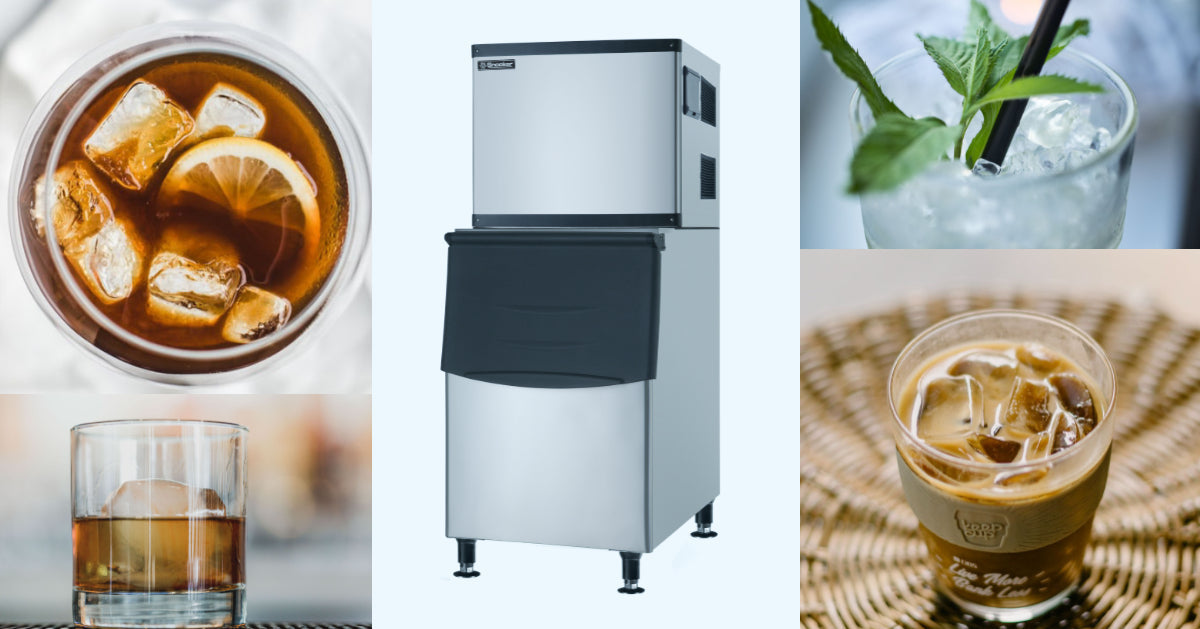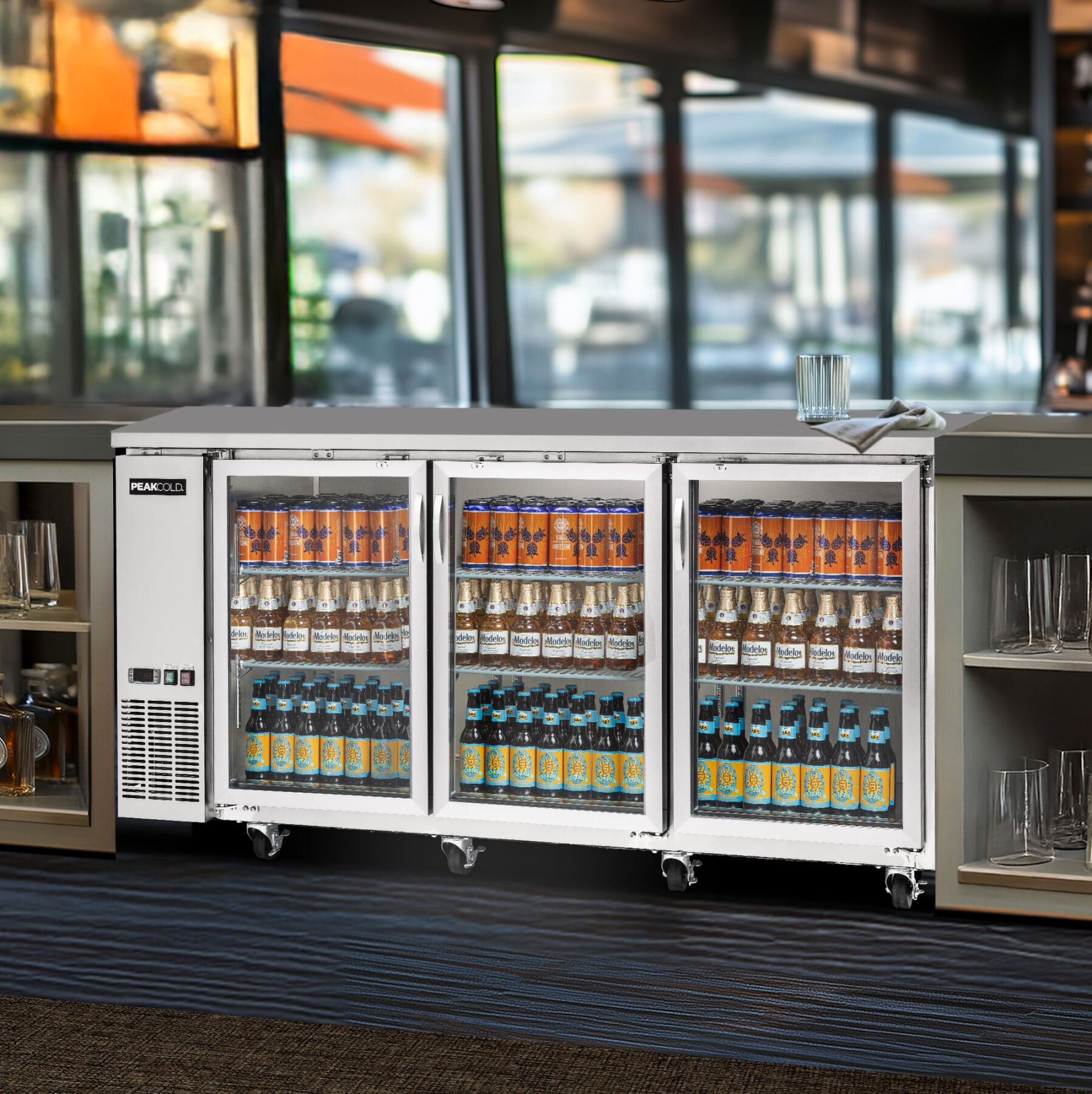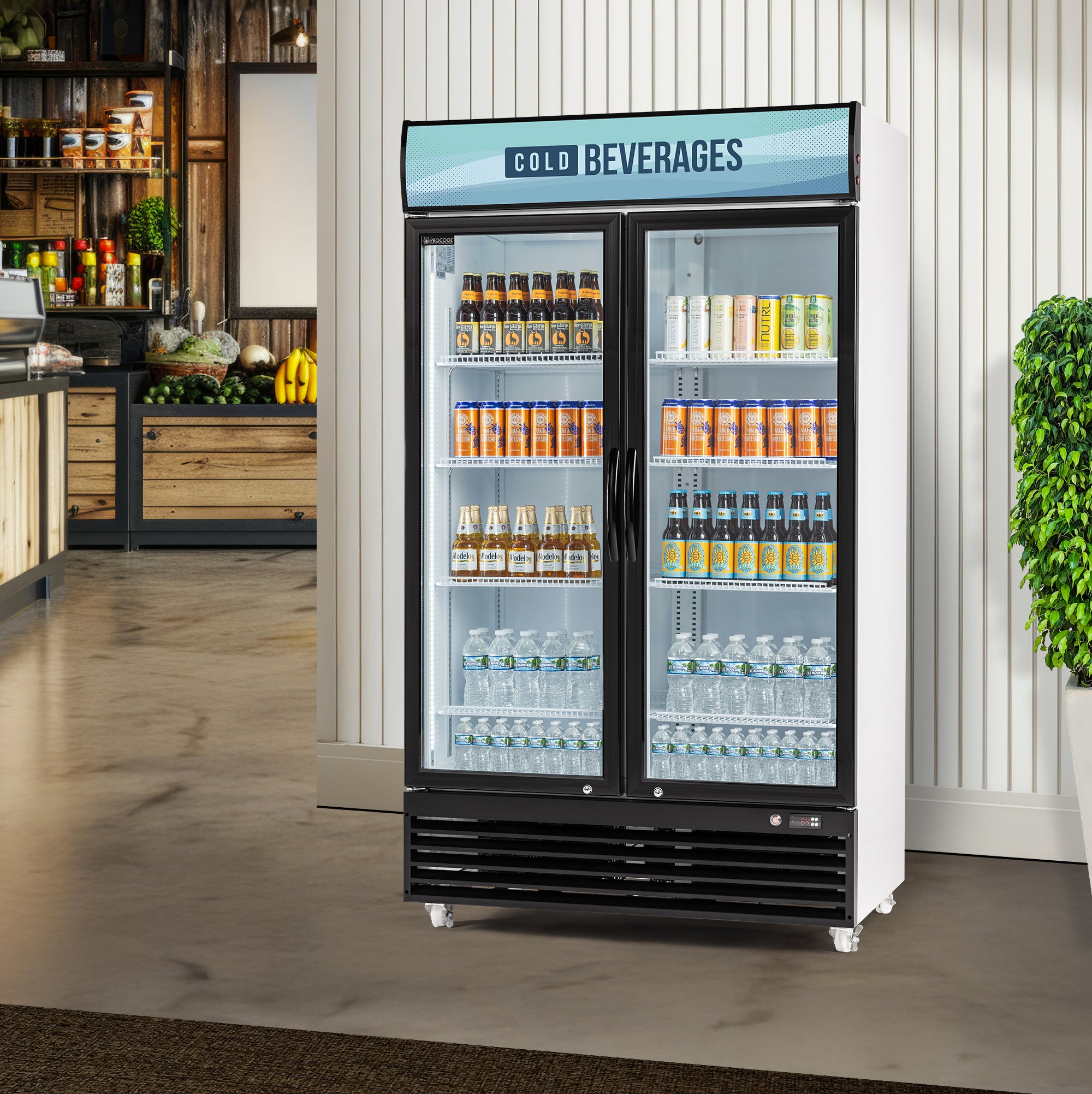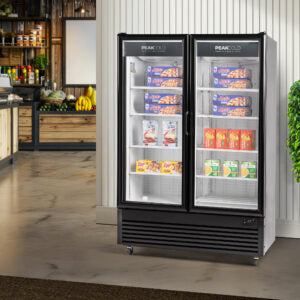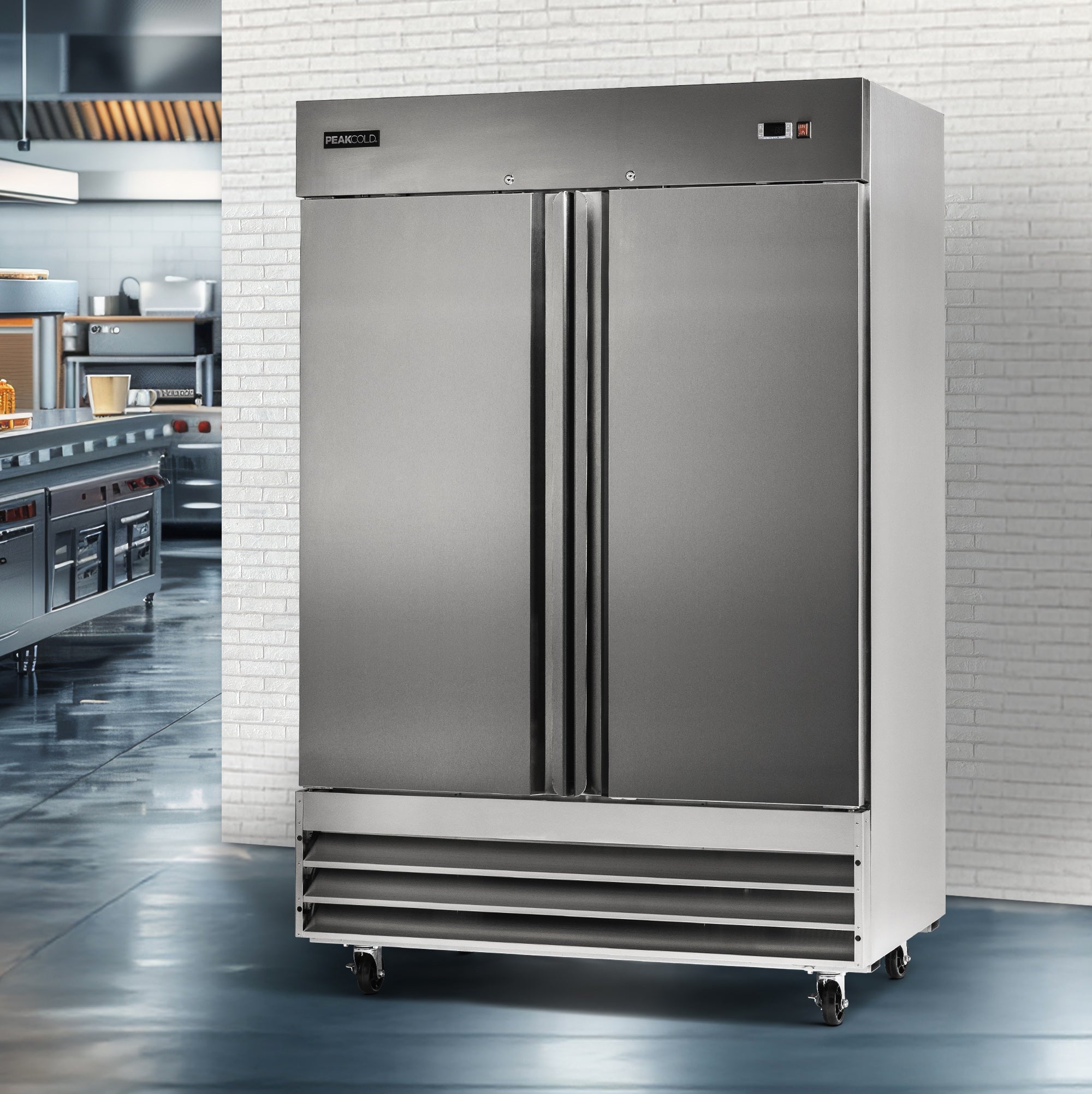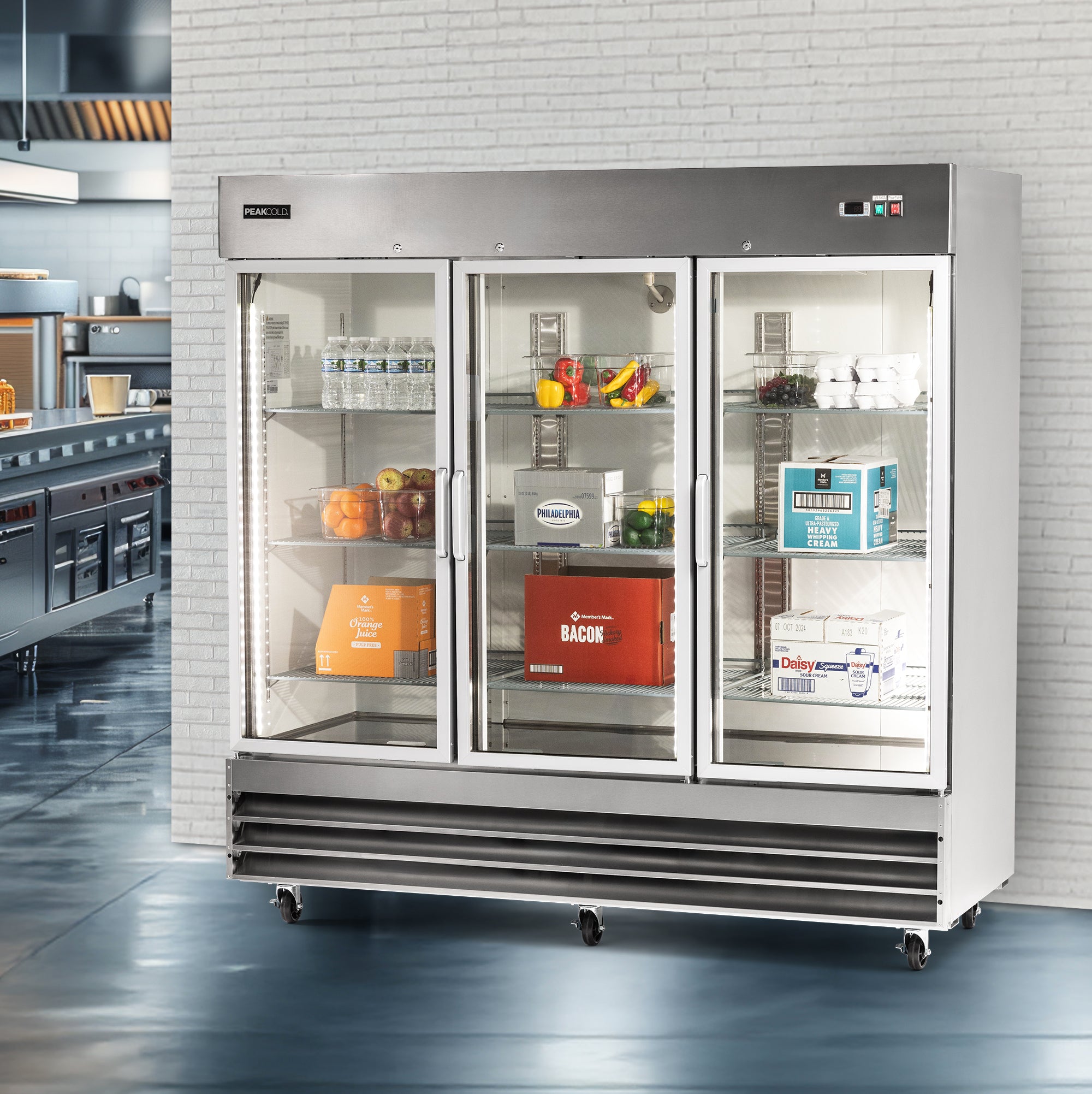In the market for an ice maker? It’s important to make the right choice. Generally, you can choose an air-cooled or water-cooled ice machine. The cooling system affects almost everything about the machine, from the initial cost and installation to the energy consumption, environmental impacts, and maintenance requirements. Although many businesses can choose between them, there are circumstances in which one will be more appropriate than the other. Wondering what is better: air-cooled or water-cooled ice machine? Here are a few factors to help guide your decision.
Understanding Ice Machine Cooling Technology
Commercial ice makers function depending on the cooling technology. Your choice affects the quality of the ice and the quantity of production your business can handle. An air-cooled ice machine relies on a continuous supply of air into the system to extract heat and deposit it outside the machine. The operating premise is somewhat similar to an air conditioner, in that the system needs a condenser and fans to achieve ideal cooling inside the unit. By comparison, water-cooled ice machines use water to cool the interior. The water circulates through the unit, drawing heat that is then removed from the machine. If the machine is connected to a water recirculating system, the water can be cooled down and then recirculated through the machine again. Otherwise, it leads to a drain.
Comparing Air-Cooled and Water-Cooled Ice Machines
Before you determine which is better: air-cooled or water-cooled ice machine, you should break down the decision by various factors. Air-cooled ice machines offer specific advantages, including ease of installation, overall efficiency, and lower cost. In exchange, you have limits on the application of an air-based cooling system, especially if you need to put it in a place where the temperature regularly exceeds 90 degrees Fahrenheit. Water-cooled ice machines can be more efficient in terms of energy usage, but they often use far more water. They also frequently cost more than an air-cooled ice maker.
Environmental Considerations of Ice Machine Cooling Systems
In the debate of air-cooled ice machine vs. water-cooled, air usually wins on the environmental aspects. An air-cooled machine typically uses more electricity than water-cooled, but you can take action to minimize energy usage. Improving airflow, installing the cube ice machine in a cooler room, and selecting an Energy Star product can all reduce the carbon footprint and other environmental impacts. A water-cooled unit can use up to 10 times the water or more, which can be a significant tax to the environment and your monthly bills. Installing a water recirculation system could help you minimize the waste.
Cost-Effectiveness of Cooling Systems
When you consider the cost effectiveness of air-cooled versus water-cooled ice machines, air often comes out on top again. Initial cost, installation, and most operating costs are lower with an air-based cooling unit. When you shop for a unit that uses air, you will notice that the price tends to be lower. This ice maker can be installed in more places, making it a more popular option. Buying an Energy Star-rated unit can decrease the costs for operation, but you should make sure to install the ice machine in an area where you can maximize energy savings. Ice makers that use water for cooling require extra equipment to install, which adds to the cost. Additionally, some regions ban the use of a water-cooled ice machine, which means that fewer manufacturers produce them. Although water-based cooling systems can use less energy to operate, the increased water usage makes them more expensive to run in most areas.
Maintenance and Lifespan of Ice Machines
When comparing the maintenance needs of an air-cooled vs. water-cooled ice maker, keep in mind that you will need to perform regular maintenance for either system. Air-based cooling systems have condensers and fans that require regular cleaning and service to continue operation. Installing the ice maker in an area with a lot of dust or grease often calls for additional cleaning between service calls. A water-cooled machine may have lower maintenance needs, except a higher risk of leaks or clogs on the water lines. If you want the most from your commercial ice machine, you should make maintenance and upkeep a priority. Choose the best cooling system for your business, and schedule annual maintenance. Proper care can preserve output and efficiency throughout the lifespan of the machine.
How to Choose a Cooling System
Ultimately, the decision between an air-cooled vs. water-cooled ice machine comes down to your business needs and the building arrangement. If you can install the machine in an area where you can control the temperature and provide plenty of airflow, such as a commercial kitchen with great HVAC, air-cooled ice machines probably make the best choice. If you need an effective ice maker in a hot region with no air conditioning or you have limited access to electricity, a water-based cooling system may be more appropriate.
Quality Commercial Ice Machines
When you make a choice about your ice machine, water-cooled vs. air-cooled, you should go with the one that is going to work best for your business. Let the cost, environmental considerations, maintenance load, and function guide your decision. Ice makers using air to cool cost less and are often easier to install and operate. An ice maker using water may spend less energy and use more water, but it works better in hotter climates. Iron Mountain Refrigeration & Equipment can help you make the right choice. To learn more about our options or browse our wide selection, shop commercial ice makers online today!


